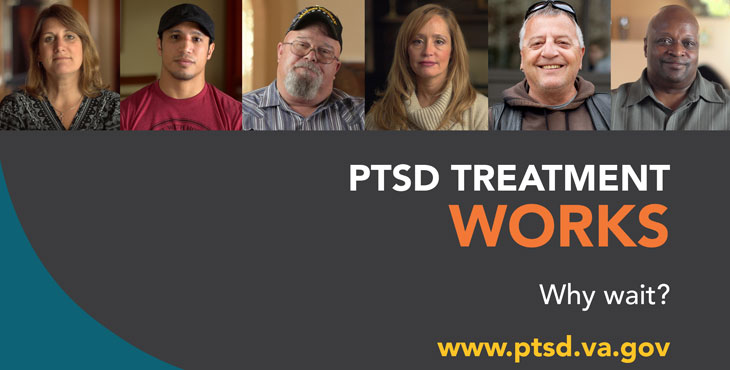Is It PTSD?
When you have PTSD, it’s hard to feel safe. The traumatic event – natural disaster, combat, sexual assault, accident – can take hold, and you find you can’t stop thinking about it. Maybe you have nightmares and trouble sleeping. Maybe you feel on edge and unsettled or don’t find pleasure in things you used to enjoy. Maybe you feel it’s just easier to be alone. Feelings like these are common after going through a trauma. For most people, they pass in a few weeks or months, but for others they are long-lasting.
PTSD symptoms fall into four categories: reliving or re-experiencing the event, avoiding things or places that remind you of the event, negative changes in beliefs and feelings, and hyperarousal or being on guard. For someone to be diagnosed with PTSD, they need to have symptoms in all four categories.
PTSD symptoms can happen at any age, and they come and go. Only a mental health care provider can diagnose you with PTSD. And, knowing if you have PTSD is the first step to getting effective treatment. So, it is important to talk with a doctor if you think you have symptoms. There are effective treatments even if you have been living with symptoms for years.
Keep in mind that you’re not alone. And, there are treatments that will help you feel better and take back control of your life. Be the advocate – take that first step for yourself.
Learn more about PTSD symptoms at the National Center for PTSD. The PTSD Coach app and PTSD Coach Online can also help you learn about PTSD symptoms and practice skills to manage those symptoms. You can even track your PTSD symptoms in the app. The PTSDTreatment Decision Aid is another online tool that can help you decide which treatment is best for you. Other useful resources are the Understanding PTSD and PTSDTreatment booklet, and the National Center for PTSD’s whiteboard videos.
Topics in this story
More Stories
VA Research Advisory Committee on Gulf War Veterans’ Illnesses hosting Veteran Engagement Sessions in Phoenix for 1990-91 Gulf War Veterans.
Navy Veteran and president of the American Medical Association got a colonoscopy and encourages other Veterans to do the same.
Chicago Vet Center and VA gave women Veterans information on VA services available to them.






